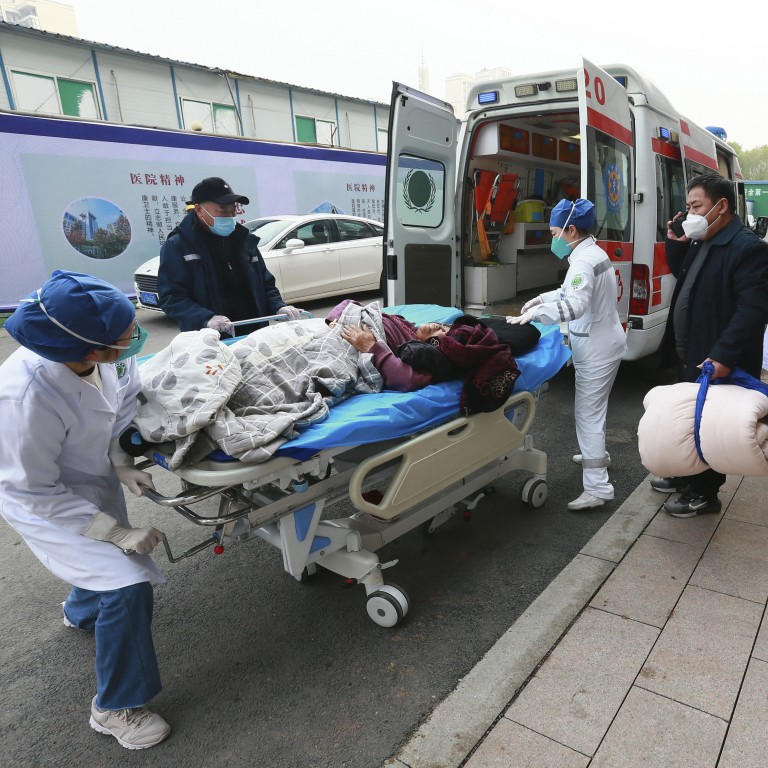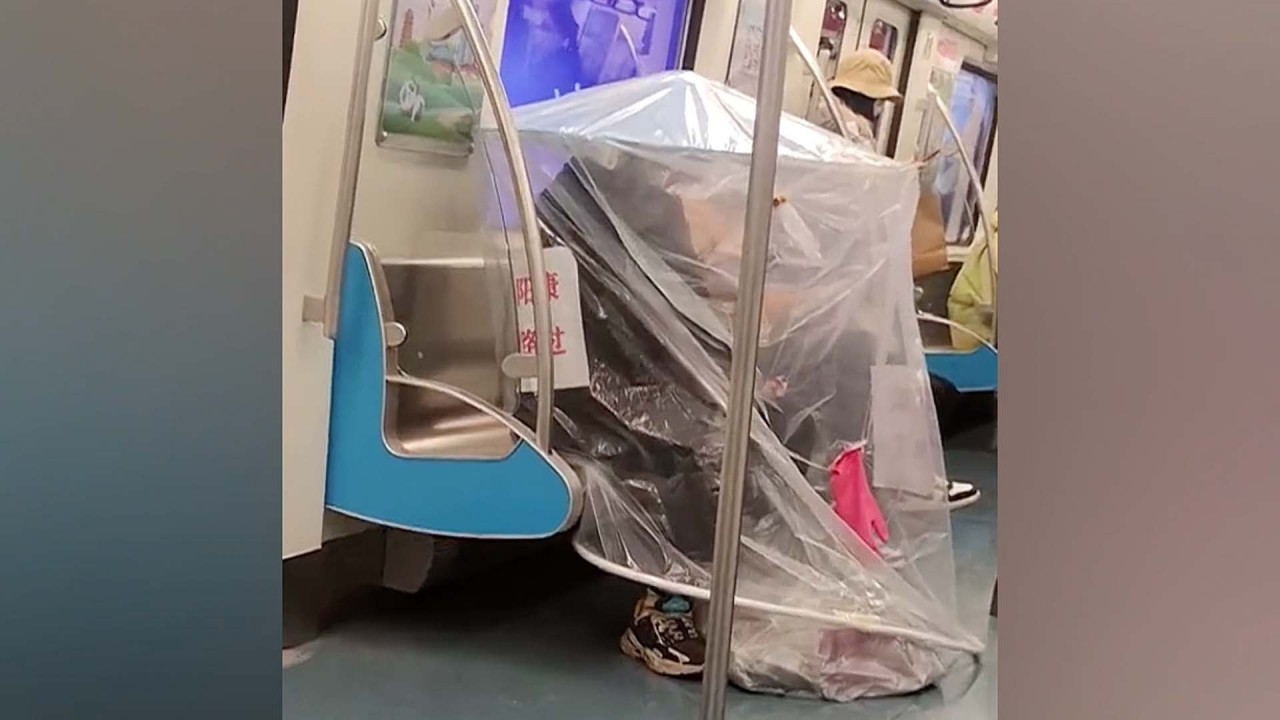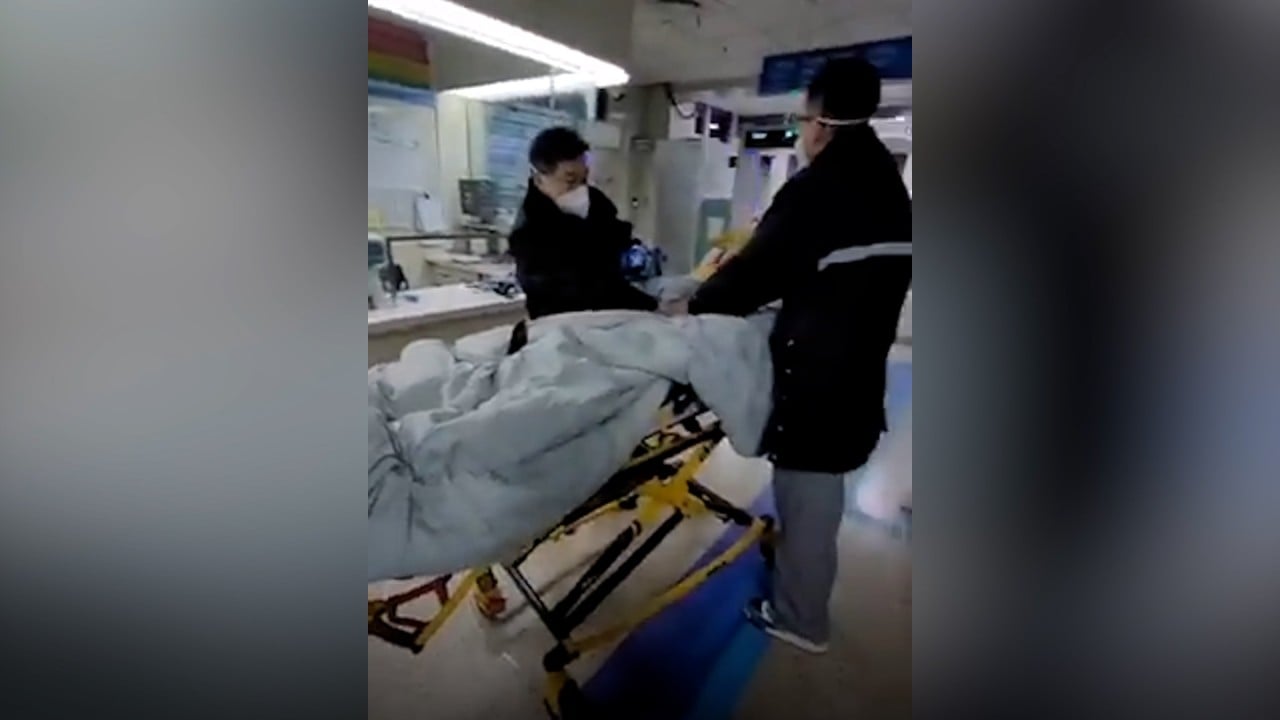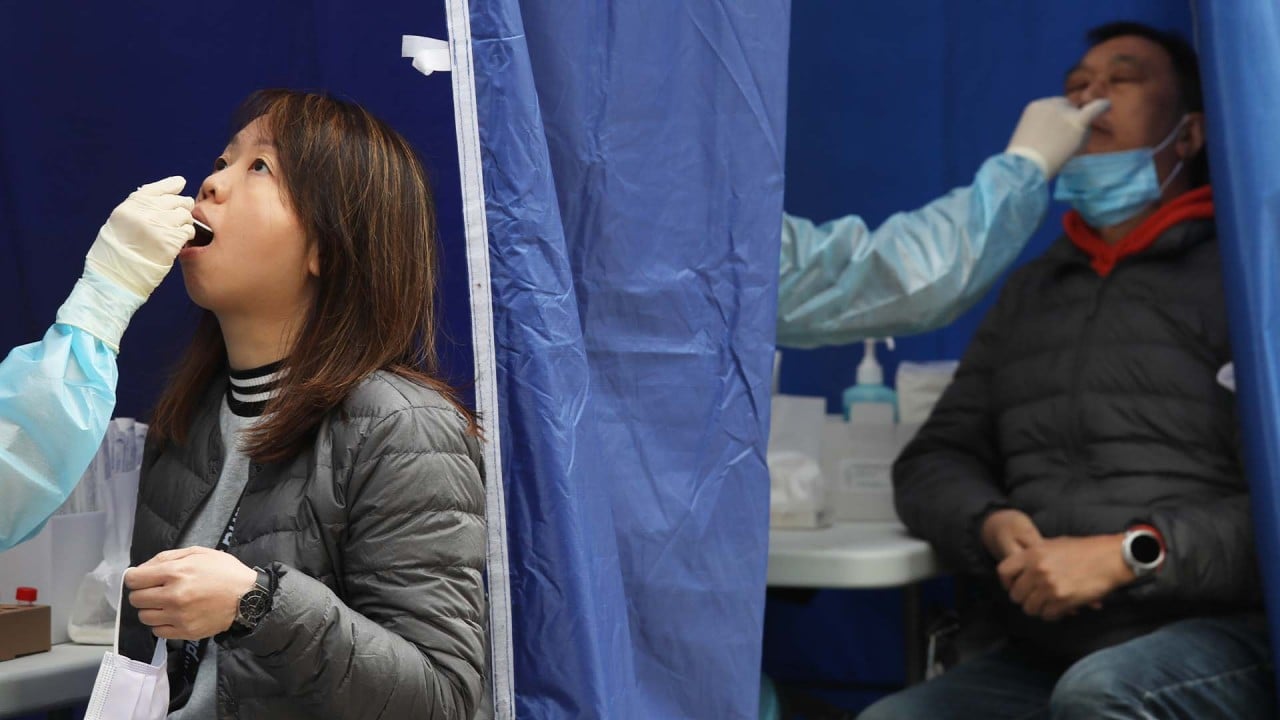
China orders Covid-19 waste water watch in cities to track variants as cases surge
- ‘Sewage surveillance’ appears on China’s national Covid-19 directives for the first time as last of zero-Covid curbs are lifted
- As many as 130 sub-lineages of the Omicron variant have been detected in China in the past three months
“Sewage surveillance” – a technique piloted in megacities such as Beijing and Shenzhen – appeared on China’s national Covid-19 directives for the first time as central authorities issued a new list of monitoring strategies last week.
The data would indicate community infection levels and the dynamic distribution of variants of particular concern, boosting pandemic preparation and the planning of a targeted response, experts said.
Malaysia to screen poop on flights from China for Covid-19
This came as a task force of the State Council, China’s cabinet, said sewage surveillance in cities with suitable conditions would be started on an “explorative” basis.
Local governments should track changes in positive case rates and viral loads, and conduct genomic sequencing as important indicators of new waves and variants, it said.
Zhang Tong, chair professor of the civil engineering department at the University of Hong Kong, said some work had already been carried out in several mainland Chinese cities.
Zhang had led the testing method for the 2020 pilot scheme for sewage surveillance in Hong Kong – one of the early adopters of the technique.
He said the city’s government departments and research institutes had been “in close contact” with their counterparts in the mainland.
“The related technologies are very mature, especially [those related to] sampling and detection,” he said, adding that sampling devices installed for pollutants could be easily modified to test viruses.
Hong Kong Covid-19 sewage tests to be expanded, aim for ‘gold standard’
Pilot schemes in major cities “could help develop technical specifications and standards and form a database,” said Zhang Han, a professor at Shenzhen University, whose company uses automated machines to collect daily sewage samples for three districts in the southern city.
Related research and tests have been carried out in some cities, he added. However, their actual scope remains uncertain, as no official plans or budget have been released.
While previous sewage testing trials focused on evaluating the size of outbreaks, the latest directive said authorities should also monitor “changes in virus genomic sequence” to identify potential variants – a matter of major concern as Covid surges across the country following the abrupt lifting of pandemic restrictions last month.
As many as 130 sub-lineages of the Omicron variant have been detected in China in the past three months, health officials said, adding that mutations will continue as the disease spreads.
“With China’s reopening, it would not be surprising to see the concurrent rise of multiple prevailing Omicron sublineages,” said Janelle Thompson, associate professor of water quality and extremophile biotechnology at Singapore’s Nanyang Technological University.
“If new variants emerge with heightened risk profiles, waste water can allow surveillance [workers] to zero-in on the dynamics and distribution of that particular variant of concern, enabling a more targeted public health response,” Thompson said.
Tests specific to the variant of concern or sequencing can run in parallel to the regular detection tests, she added.
Covid-19 is ripping through China. Could a new variant of concern emerge?
Sewage data can show infections earlier than clinical data from test results as there is usually a delay between getting infected and symptoms showing and when the individual seeks to get tested, according to Aparna Keshaviah, principal researcher focusing on waste water-based epidemiology at Mathematica, a US-based research institute.
“[Sewage testing] not only gives officials a feedback loop to assess whether containment measures are working, but can help officials target limited resources to areas that need them most,” Keshaviah said.
China first started looking at sewage monitoring after the National Health Commission published guidelines last March on tracking waste water for the spread of the coronavirus.
Although the authorities did not set out national policies immediately, the guidelines had significant implications, as they laid out in detail the steps, ingredients and machines involved.

The guidelines sparked a few attempts on the local level. Haidian district of Beijing, for instance, arranged to test 50 sewage treatment plants weekly in August.
The southern city of Shenzhen started sewage surveillance at its Shenzhen Bay port in September before extending it to the entire city in December.
Over 90 pumping or sewage treatment plants were covered in the citywide drive, according to Professor Zhang at Shenzhen University.
“This is currently the only way available to collect citywide data on infections [after the lifting of Covid curbs],” he said.
“Without the standards [released in March], we could neither determine positive or negative cases, nor conduct quantitative analysis [of waste water] accurately,” he said.
There was little academic research and the technique was immature before then, he added.
But he expected updates as that notice did not include steps to analyse variants.
Similar progress was unheard of in lower tier provinces like Jiangsu and Anhui, according to the operations manager of a water service company serving the region. “I have not received any notice to start a similar kind of work,” he said.
Chinese cities pass Covid peak, but rural surge still to come, researchers say
“This kind of service has to be purchased by the local government or led by the disease control department; small cities like ours lack similar policies, capital and human resources,” said a departmental deputy manager at Zhejiang Quzhou Water Industry Group in eastern China.
“It would be more difficult for third- or fourth- tier cities to start projects like this,” said the manager, who asked to be identified only by the family name He due to the sensitivity of the matter.
The United States, Singapore and the Netherlands are among nations that have incorporated sewage surveillance into their Covid-19 monitoring system.
The US started to track virus levels and variations from genetic materials in waste water treatment plants in September 2020, identifying this as an “early warning system” for public health response.
The Alpha, Delta, and Omicron variants were detected in sewage around 10 to 14 days before the first positive cases in the country, according to a study published last July by scientists from the University of California San Diego.
In March 2021, the European Commission also called all member states to collect samples from water treatment plants to detect and analyse the coronavirus and its variants on a biweekly basis.
Spain joins Italy in placing new curbs on Chinese travellers
But simply adopting the method would not guarantee a fully comprehensive data set.
Experts have highlighted challenges in data interpretation as domestic waste water, rainwater, and treated industrial waste water could be discharged into the same ageing pipeline system in China, according to research conducted by Fuzhou University.
Hundreds of millions of people living in rural areas without access to networked sanitation services might also go under-represented, noted Keshaviah.
However, if authorities are able to grab the momentum offered by the pandemic battle, this approach can be used “in the future to monitor chronic diseases, exposure to environmental contaminants, and even health issues arising from climate change”, she said.





